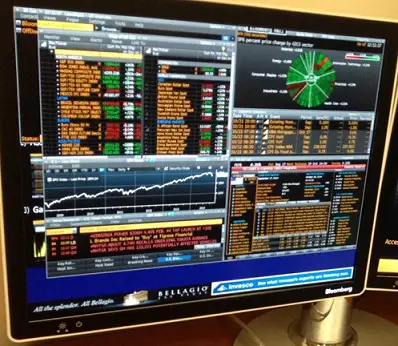As investors prepared for a big week of corporate earnings reports, US stocks soared Monday.
The S&P 500 (^GSPC) rose 2.7%, into the afternoon, as the Dow Jones Industrial Average was up nearly 600 points for a 1.9% gain, and the Nasdaq rose 3.4%.
The gains follow a volatile week in the market, in which even after the CPI report showed inflation continued to persist across the economy, the S&P 500 had its fifth-largest intraday reversal after hitting a low Thursday. Even after reversing its losses, the index remained down for the week.
Now investors will turn their attention to how companies are laboring under the persistent inflation and the tightening monetary policy of the Federal Reserve as companies roll out their third quarter earnings reports.. Closely watched reports will be coming from Netflix (NFLX), Tesla (TSLA), and IBM (IBM) this week.
So far, the third quarter earnings season has proven weaker than expected judging by the reports which have come out so far. Out of the 7% of S&P 500 companies reporting so far, 69% have registered earnings per share above estimates, which is below the five year average of 77%.
Bank of America was the second to last of the nation’s six largest banks by assets, reporting earnings Monday. After releasing a report which showed revenue beat Wall Street estimates, it rose over 3% in pre-market trading. However profits still slumped as it was forced to lay away funds to guard against uncollected loan payments if there were a recession, and it saw increased loan defaults.
In the UK, the drama between the government and its central bank continued as the Bank of England announced it would restart bond sales next week following its rescue intervention that entailed a pause on selling, to stabilize the market after it began to crash. Meanwhile, Finance Minister Jeremy Hunt went on to reverse most of the “mini-budget,” including a broad swath of tax cuts, which had triggered the sell off in British assets. British sterling was up as much as 1.4% after the reversal.

